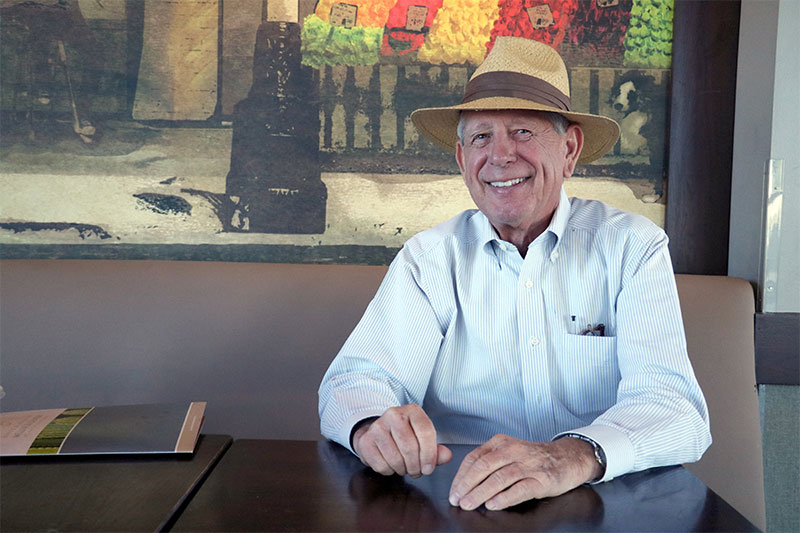Navigating Arizona’s Workforce with Hearing Loss

When Wayne Byram lost his hearing, he slipped into depression. Byram, who grew up in the outskirts of Birmingham, is by nature, a go-getter who knows the meaning of hard work. For this social over-achiever, the inability to communicate and continue his success as a professional chef resulted in an overwhelming sense of defeat. For many years, Byram sought solutions for his hearing loss, but after working with seven ENTs and finding no answers, he felt hopeless. Despite his wavering joy, his tenacity motivated him to seek help from the Arizona Department of Economic Security’s (DES) Vocational Rehabilitation (VR) program to help him re-enter the workforce.
Byram says he encountered discrimination from his boss and workplace peers as a result of his disability. “I was so frustrated because I was being mistreated at work,” explained Byram. “In the kitchen, if you can’t hear, you’re a liability and my boss would make fun of me because I was deaf. My deafness was a pain for them.”
Byram retired from his job as a chef, but wasn’t content. His culinary passion left him longing for that line of work, but he said getting a job wasn’t easy with his hearing as an issue.
“As good of a chef as I am, I spent over three years looking for work,” said Byram. “Even though I know a lot about food and the preparation of food, people would not hire me because of my hearing.”
Byram connected with two counselors from the DES VR program, Ellen Boyd and Melissa Drake, who worked with him to rebuild his confidence and helped him obtain the tools he needed and deserved. “I went in with zero confidence,” he said, “but they [DES VR counselors] taught me that there are always solutions and helped me be me again.”
Byram raved about his experience with the VR staff, explaining that he now felt empowered to make his own decisions and learned how to ask for and accept help.
“Ms. Drake got me new hearing aids and a microphone that I can ask others to wear so I can hear them better,” he explained. Byram further added that his VR counselors connected him to a class offered through Arizona State University that helped him learn how to improve his ability to read lips.
“She [Ms. Drake] bent over backward to help me,” said Byram. “My hearing impairment was just a symbol for what was going on with me mentally. She taught me that I have to depend on others to help me. You can’t find resources like they [DES VR counselors] provided to me if you just look online.”
Byram was overjoyed with his new tools, but didn’t give up on his quest to heal the constant pain and pressure he felt in his ears, nor on his goal for improving his hearing. He learned about an allergy and wellness clinic in Scottsdale that piqued his interest. He visited the center and received new answers following an MRI. The center’s doctor proposed an innovative procedure to heal what they found to be a Eustachian tube malfunction. Byram decided to undergo the technique.
The days following the procedure weren’t easy, explained Byram. Then, about a week after, he and his dog, Buddy, went for a walk and bumped into a neighbor. She greeted them and Byram nearly began to cry. He was in disbelief because he heard every syllable perfectly.
Today, 71-year-old, Byram, is now happily employed full-time and says his goal in life is to share his story to help others with hearing loss. He highly recommends the DES VR program and the wellness center who he says “got him where he is today.”
DES recognizes September as National Deaf Awareness Month and aims to assist all Arizonans with disabilities to complete their educational goals and obtain gainful employment. For more information about the DES VR program, please visit the Arizona Rehabilitation Services website.
By Jillian Seamans

